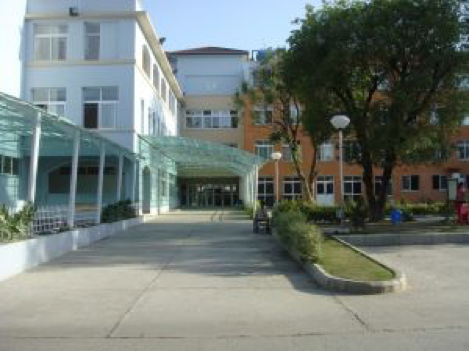Professor Buddha Basnyat

Contact information
Podcast interview
High altitude illness

High altitude illness can be prevented by a simple rule: don't go too high, too fast. Drugs can also be used, and Dr Basnyat showed that a much lower dose of Diamox, a commonly used drug, is as effective. His research also focusses on the effect of high altitude on pilgrims, an older, poorer and more vulnerable population.
Buddha Basnyat
Associate Professor
- Chairperson of OUCRU Nepal
OUCRU Nepal
Dr Basnyat is a distinguished physician and clinical researcher whose career spans over five decades. He was recently honored with the Nepal Health Research Councils (NHRC) Lifetime Achievement Award for Health Research in Nepal, recognising his exceptional contributions to medical science and public health.
Dr Basnyat has been instrumental in advancing the understanding of infectious diseases and high-altitude medicine, both in Nepal and globally. His pioneering work includes landmark randomised controlled trials on typhoid vaccines that influenced WHO recommendations, and the identification of scrub typhus as a major cause of febrile illness in Nepal, leading to nationwide changes in diagnosis and treatment.
In addition, he has spearheaded landmark typhoid treatment trials which changed therapy. As a leading expert in antimicrobial resistance (AMR), his research has shaped Nepal’s National Antibiotic Guidelines, promoting rational drug use in low-resource settings.
In 2003, he co-founded OUCRU Nepal with Prof. Sir Jeremy Farrar and served as its director until 2022. He also leads the Travel and Mountain Medicine Centre and the Himalayan Rescue Association where his work has significantly improved the management of altitude-related illnesses.
Beyond his scientific achievements, Dr Basnyat is a dedicated mentor, fostering the growth of Nepal’s next generation of clinician-scientists and building a sustainable research community. His role as Honorary Consul of Canada to Nepal further reflects his commitment to international collaboration. Dr Basnyat’s legacy is defined by his tireless dedication to science, mentorship, and public health, making him a transformative figure in Nepal’s medical landscape.
Recent publications
-
Assessment and management of dengue.
Journal article
Adhikari S. et al, (2025), BMJ (Clinical research ed.), 388
-
Evaluation of hydroxychloroquine or chloroquine for the prevention of COVID-19 (COPCOV): A double-blind, randomised, placebo-controlled trial
Journal article
Schilling WHK. et al, (2024), PLOS Medicine, 21, e1004428 - e1004428
-
Higher dose corticosteroids in hospitalised COVID-19 patients requiring ventilatory support (RECOVERY): a randomised, controlled, open-label, platform trial
Preprint
Horby PW. et al, (2024)
-
Pathogen diversity and antimicrobial resistance transmission of Salmonella enterica serovars Typhi and Paratyphi A in Bangladesh, Nepal, and Malawi: a genomic epidemiological study.
Journal article
Dyson ZA. et al, (2024), The Lancet. Microbe, 5
-
A retrospective investigation of the population structure and geospatial distribution of Salmonella Paratyphi A in Kathmandu, Nepal.
Journal article
Mylona E. et al, (2024), PLoS neglected tropical diseases, 18



